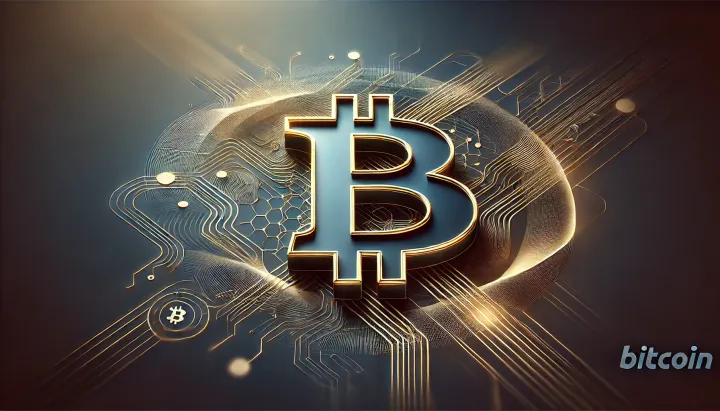Bitcoin Transition: Overcoming Fiat Challenges
The March 23, 2025 episode of The Bitcoin Matrix featuring Jimmy Song explores how Fiat money’s systemic distortions—such as rent seeking and devalued social bonds—undermine traditional savings, while Bitcoin emerges as a resilient alternative.

- My 'briefing notes' summarize the content of podcast episodes; they do not reflect my own views.
- They contain (1) a summary of podcast content, (2) potential information gaps, and (3) some speculative views on wider Bitcoin implications.
- Pay attention to broadcast dates (I often summarize older episodes)
- Some episodes I summarize may be sponsored: don't trust, verify, if the information you are looking for is to be used for decision-making.
Summary
The March 23, 2025 episode of The Bitcoin Matrix featuring Jimmy Song explores how Fiat money’s systemic distortions—such as rent seeking and devalued social bonds—undermine traditional savings, while Bitcoin emerges as a resilient alternative. Song’s insights suggest that institutional shifts like government Bitcoin reserves could facilitate a smoother monetary transition. His discussion highlights both the economic and societal imperatives for rebalancing value creation.
Take-Home Messages
- Bitcoin as a Savings Vehicle: Bitcoin preserves value more effectively than Fiat money, offering a resilient store of wealth amid economic volatility.
- Fiat’s Distortions: Systemic issues inherent in Fiat regimes foster rent seeking and erode genuine value, necessitating reform.
- Institutional Adoption: A government Bitcoin reserve could stabilize monetary transitions and reduce the risks of hyperinflation.
- Restoring Community Bonds: Transitioning from Fiat to Bitcoin may reinvigorate meaningful social and familial connections.
- Policy and Regulation: Thoughtful regulatory strategies are essential to balance Bitcoin innovation with financial stability and investor protection.
Overview
Jimmy Song opens the episode by detailing how fiat money drives economic distortions through rent seeking and devalues core societal values. He contrasts these issues with Bitcoin’s potential to function as a robust, value-preserving savings vehicle.
Song explains that the pervasive influence of fiat money extends to cultural, educational, and familial domains, undermining traditional notions of community and legacy. He uses real-world examples to illustrate how economic incentives under a fiat regime lead to exploitative practices.
A key part of the discussion is the proposal for institutional measures - such as establishing a government Bitcoin reserve - to enable a smoother transition away from fiat dependence. Song argues that such measures could mitigate economic repression and foster a more transparent monetary system.
In concluding remarks, Song reflects on the broader cultural shifts induced by fiat money, noting that restoring natural economic and social bonds is essential for long-term prosperity. He posits that Bitcoin’s decentralized framework offers a path to reestablishing these meaningful connections.
Stakeholder Perspectives
- Policymakers: Focus on ensuring economic stability and exploring reforms to transition away from fiat systems.
- Financial Institutions: Evaluate the risks and potential of integrating Bitcoin into broader financial frameworks.
- Bitcoin Advocates and Developers: Emphasize technological robustness and the preservation of value through decentralized systems.
- Academics and Researchers: Seek empirical evidence on how shifting from fiat influences social and economic behaviors.
- General Public: Look for protection against economic devaluation and opportunities to secure long-term savings.
Implications and Future Outlook
Song’s analysis suggests that Bitcoin could mitigate the systemic vulnerabilities created by fiat money, potentially stabilizing economic cycles and reducing exploitative rent seeking. This shift would not only improve financial stability but also empower individual savers in a reformed monetary landscape.
The discussion also implies significant societal benefits; as communities move away from dehumanizing fiat incentives, stronger local bonds and renewed trust in economic relationships may emerge. Such a transformation could lead to a more cohesive society that values genuine contributions over mere accumulation.
Policy reforms like a government Bitcoin reserve and enhanced regulatory frameworks are likely to be pivotal. These changes could drive institutional and cultural shifts, ensuring that technological innovation in monetary systems translates into broader economic resilience and public trust.
Information Gaps
- What economic indicators can reliably forecast when Bitcoin will outperform traditional fiat savings? This question is crucial for guiding both policymakers and investors toward proactive monetary reforms.
- How can a government Bitcoin reserve be structured to facilitate a non-disruptive transition away from fiat dependence? Addressing this will help clarify the feasibility and design of institutional adoption.
- What mechanisms can mitigate rent seeking within the Bitcoin ecosystem while preserving its decentralized ethos? This is vital to ensure that Bitcoin’s adoption does not replicate the exploitative dynamics of fiat systems.
- In what ways can Bitcoin’s decentralized framework restore community bonds eroded by modern monetary practices? Answering this could illuminate the broader social benefits of a Bitcoin-based economy.
- What regulatory strategies can balance the pace of Bitcoin innovation with the need for financial stability and investor protection? This research gap is critical for fostering an environment where technological advancements support sustainable economic growth.
Broader Implications for Bitcoin
Bitcoin as a Counterbalance to Fiat
Bitcoin’s potential to serve as an alternative to fiat money could fundamentally reshape economic practices by reducing reliance on central banking policies. This transition may alleviate systemic issues like rent seeking and market distortions, thereby stabilizing financial cycles. Broader adoption of Bitcoin could encourage parallel reforms in other sectors impacted by monetary excess.
Restoration of Social Capital
A shift from Fiat money to Bitcoin could rejuvenate community bonds by incentivizing decentralized, value-driven economic behavior. Strengthening these bonds may counteract the dehumanizing effects of corporate and governmental overreach fostered under fiat regimes. The resulting social renewal would enhance trust and collective well-being within communities.
Policy Reformation and Institutional Change
Integrating Bitcoin into public policy could drive sweeping financial reforms aimed at reducing systemic risks. Such changes would promote greater transparency, accountability, and stability in monetary governance. This institutional evolution could set a precedent for global financial systems to prioritize sustainable value creation.



Comments ()